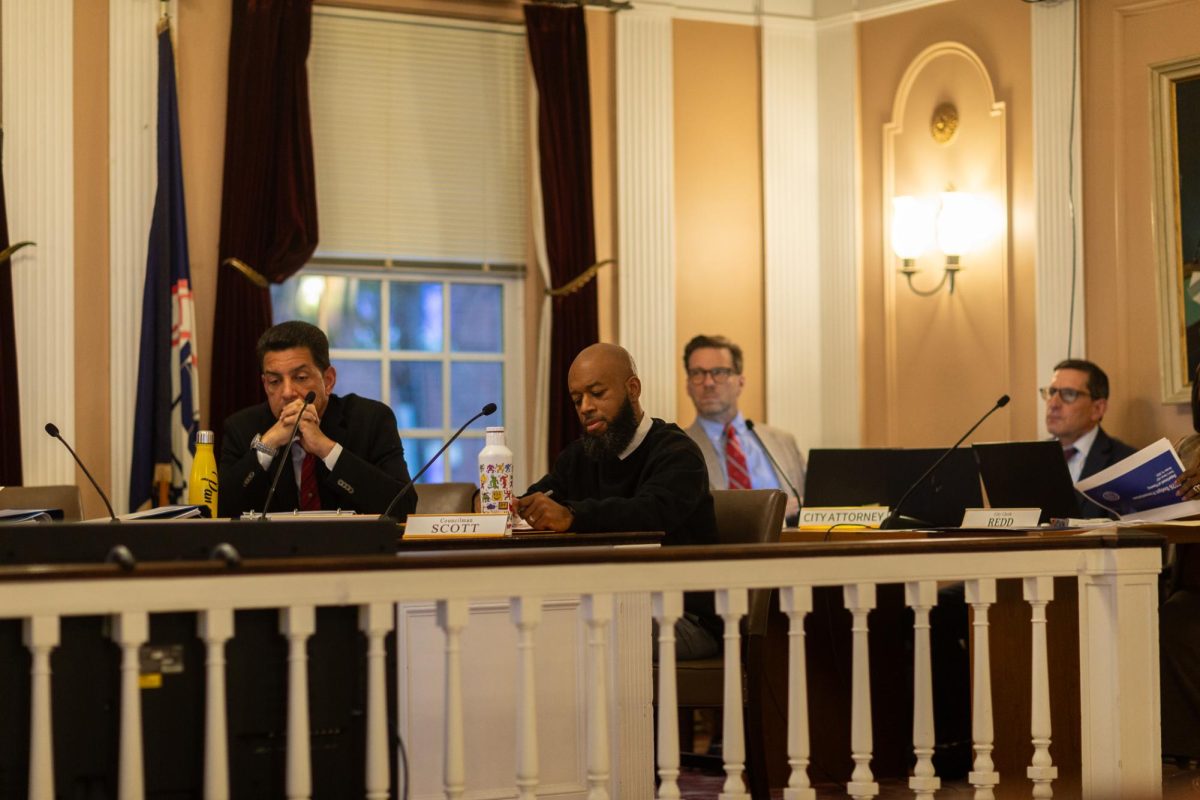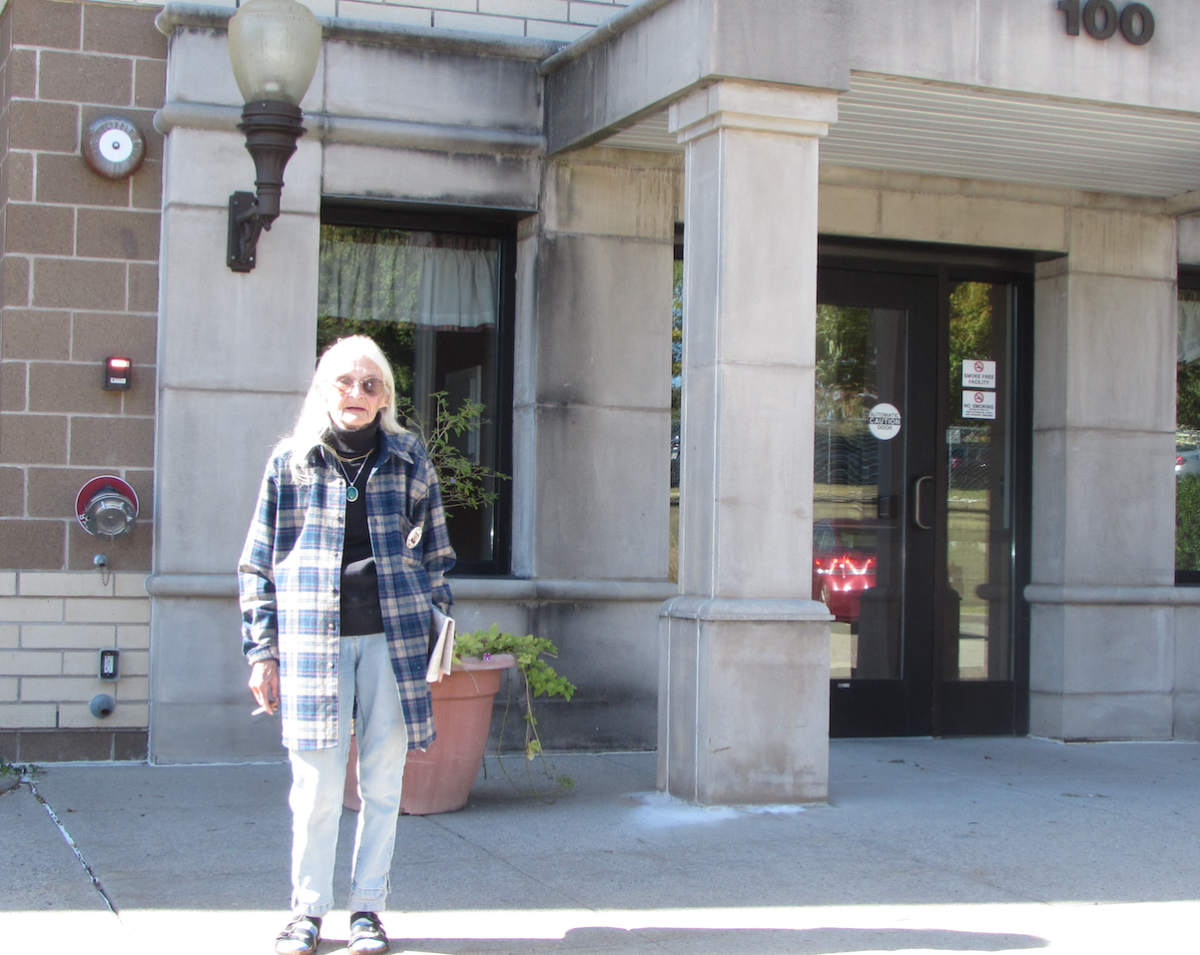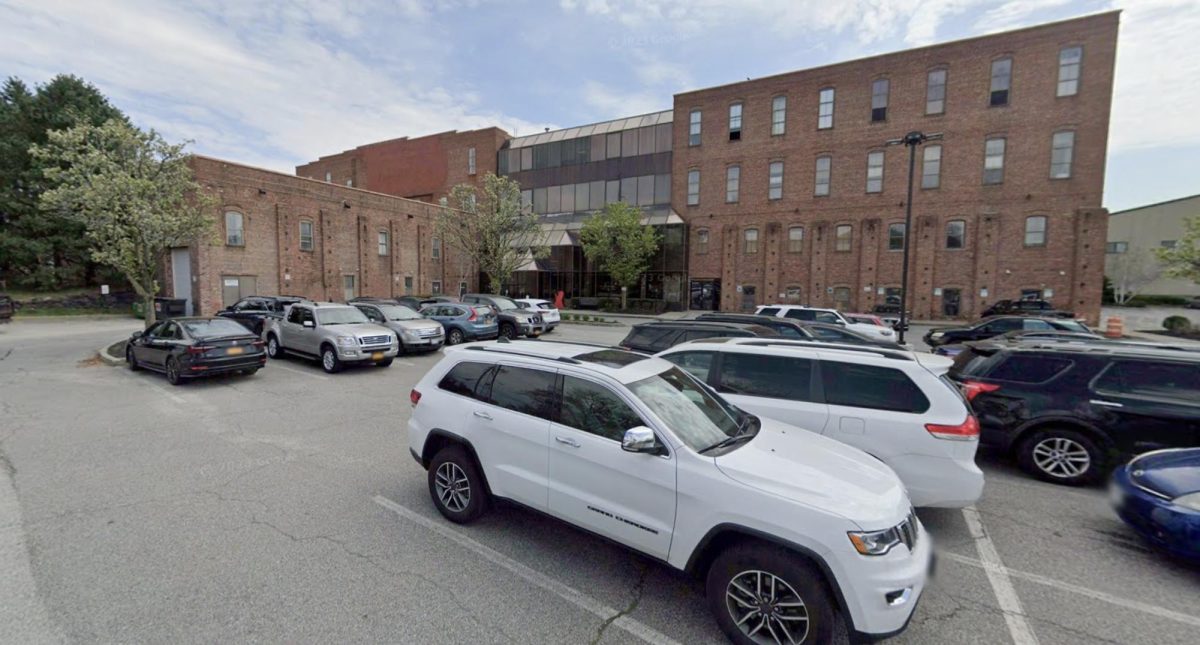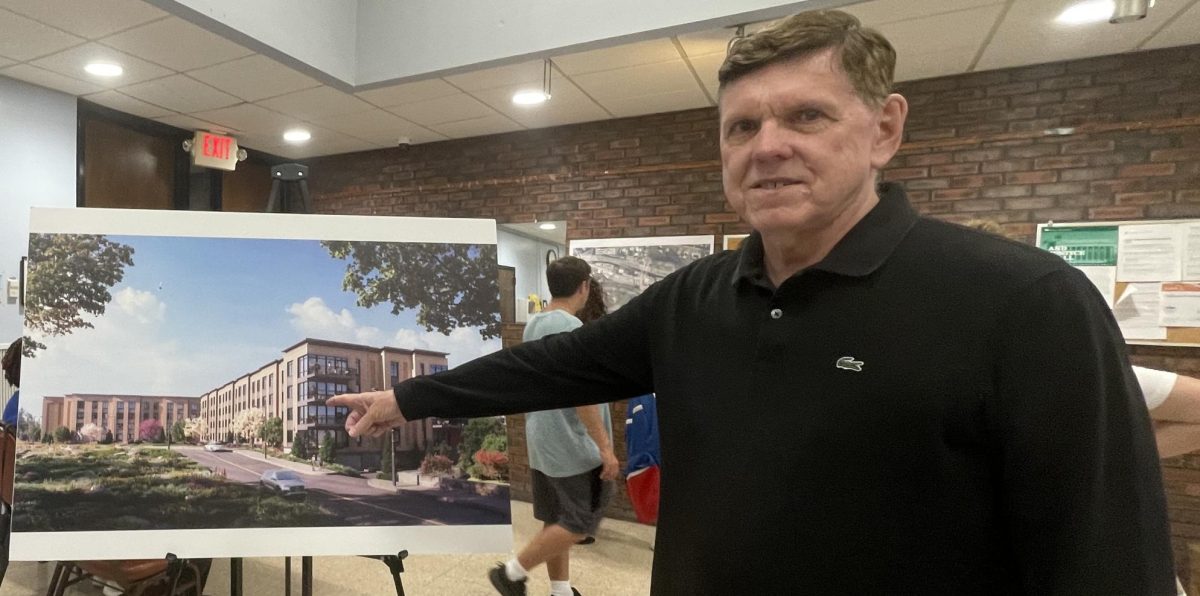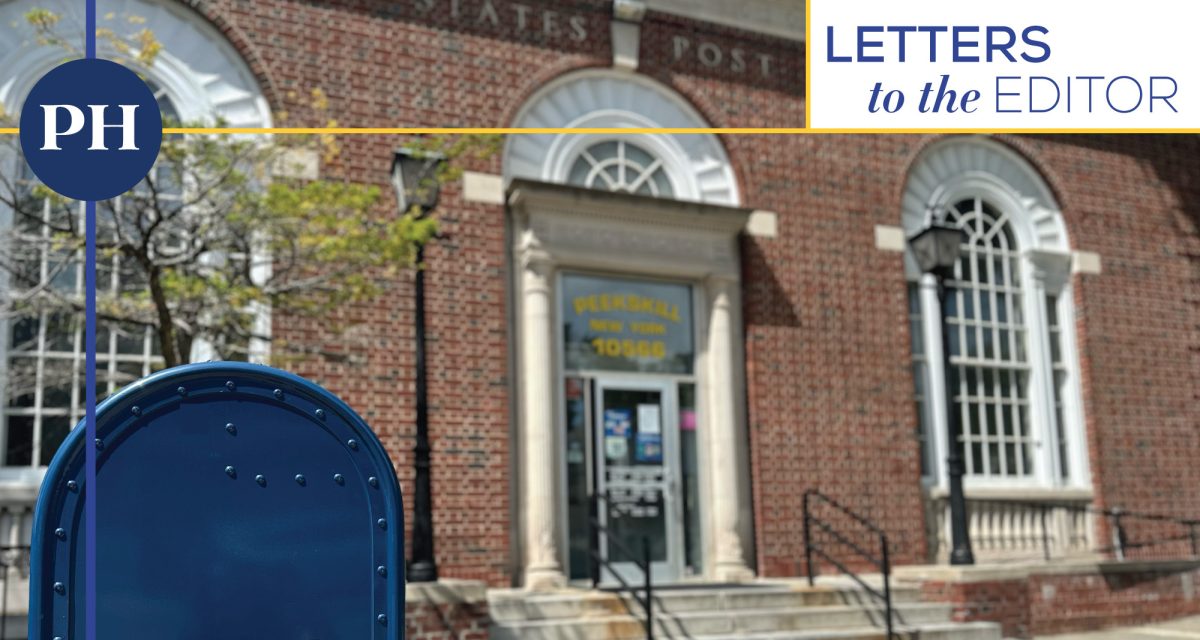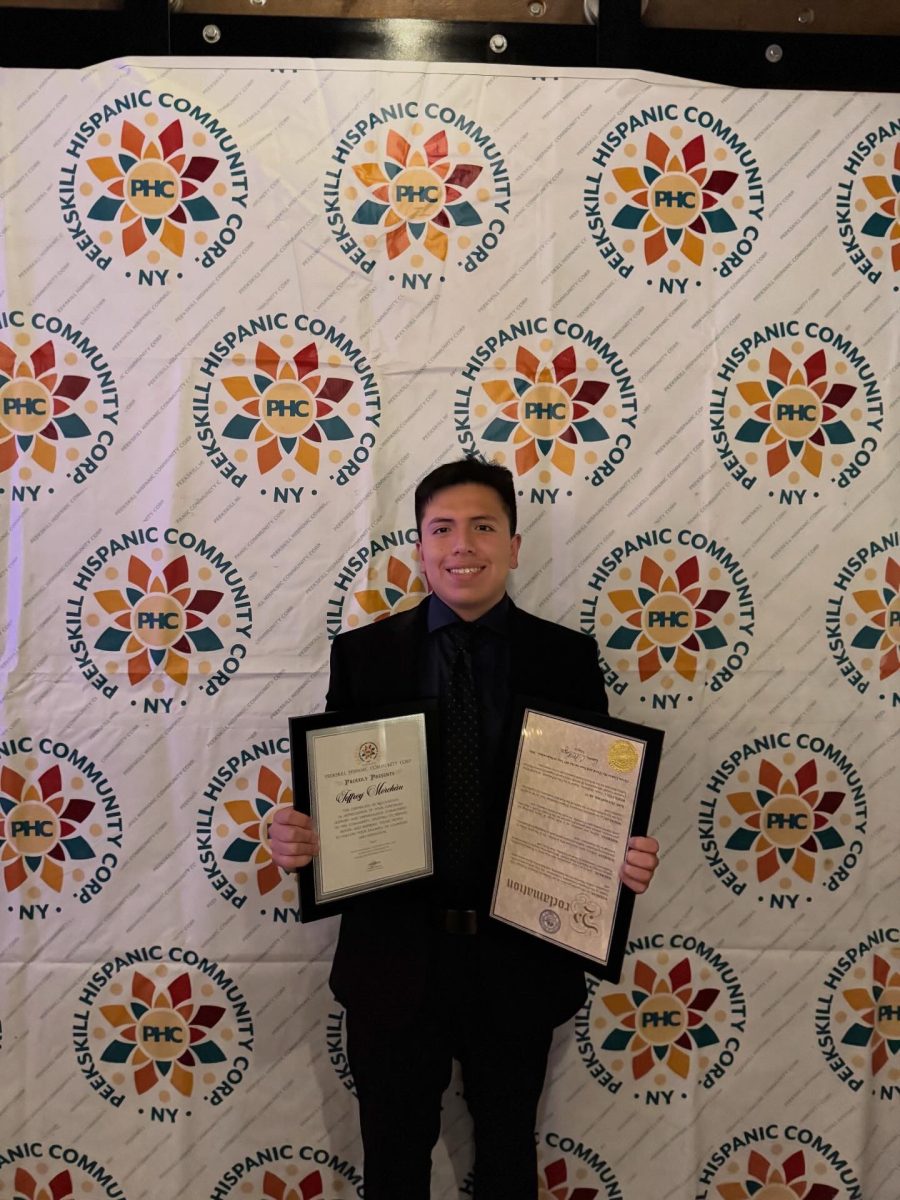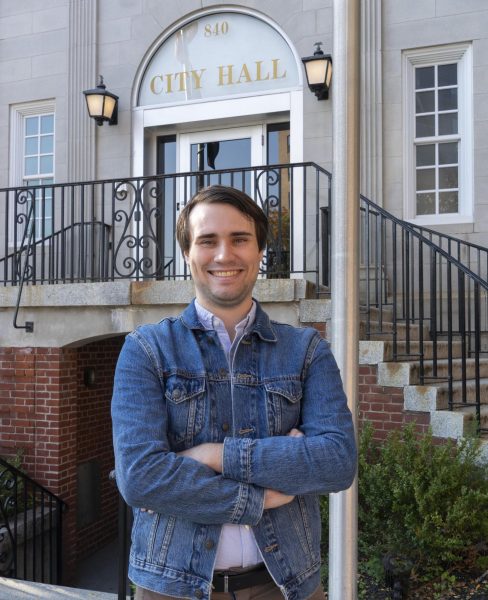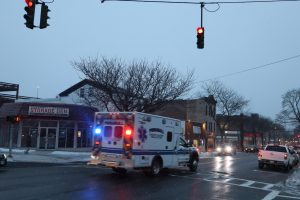
If you’re driving up to a red light, it may soon be time to smile for the camera.
The City of Peekskill is considering adopting red light camera enforcement for drivers who run red lights, but first they would need authorization from the state legislature.
At Tuesday’s Committee of the Whole, City Attorney Eric Gordon said the council could pass a resolution asking representatives in Albany such as State Sen. Pete Harckham and Assemblywoman Dana Levenberg to bring the legislation forward.
“We’re asking them to bring a bill before their committees and then before the whole legislature, and that is to then be signed by the governor,” Gordon said.
The first step for the council, Gordon said, would be to draft the local law, after an assessment from the police department about which intersections require cameras. If passed by the state, the city could install cameras, at its own expense. Such red light cameras have been installed in New Rochelle, White Plains, and Mount Vernon for several years.
The city is also considering installing additional no turn on red traffic signs at city intersections, as well as replacing several missing signs.
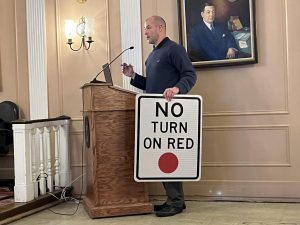
The Department of Public Works (DPW) assessed about 10 intersections (of the city’s 39), and believes that no turn on red signs could be added at 16 intersections.
According to Director of Public Works Christopher Gross, there are about 15 signs that are physically missing, with costs to replace those signs being about $3,000 to $4,000 in total.
At the Jan. 21 meeting, Councilman Brian Fassett had asked Gross if DPW could see what options there were to make no turn on red signs more unified and graphical before signs were purchased. Councilman Douglas noted that since Peekskill is “becoming an international city,” graphical signs might help a non-English dominant population. Gross told the Herald on Thursday that the sign presented at the meeting was one they are considering to be uniform.
Deputy Mayor Patricia Riley said that if the city decides to fully embrace the no turn on red, DPW should install signs at all city entrances letting drivers know the city has become a no turn on red city.
Gross also provided a brief update on winter parking, in response to complaints about winter parking tickets and unclear rules on parking.
He added that they are talking to application service providers of software the police department currently uses to track what vehicles are parked in compliance and to see if DPW could use it to communicate directly with residents concerning parking regulations.
According to City Manager Matt Alexander, city staff are considering upgrading several things with the service, such as a feature that notifies drivers that parking rules are in effect or if their neighborhood is a no parking zone.
The DPW is also still considering adding 40 signs throughout the city informing residents of winter parking regulations, Gross said.
City looks to enhance summer camp program for 2025
The Community Hub is looking to raise the bar for their summer camp programs after attendance has consecutively trended downward.
Jonathan Zamora, Site Manager and Director of Community Hub, said that summer camp enrollment trends declined from 2019 to 2024, barring 2020 where there was no camp due to the pandemic. Attendance for the day camp went from 284 in 2021, 346 in 2022, 331 in 2023, to 250 last year.
Expenditures in 2024 for the summer, day, and teen travel camps were greater than revenues, Zamora noted. In 2024 staff and bus rental total expenditures for summer camp expenses were $227,145 with a revenue of $147,940, resulting in a deficit of $79,205.
“Our curriculums really haven’t been refreshed,” Zamora said. “They’ve kind of remained stale and it’s 2025. Residents demand and expect more.”
The Community Hub has identified new potential partnerships for 2025 to reinvigorate their summer camps.
This includes revitalizing the Youth Bureau camp with new sports programming and an entrepreneurial camp, a new arts camp programming, 5 Day a/Week Travel Camp with new destinations, and a proposed free program from the YWCA for students five to ten years old called the Freedom School.
“Freedom School is really providing enriching academic and civic programs with a culturally sensitive approach, which is really important,” Zamora said. “There is no cost, we do have 60 spots available. We really are looking forward to rolling out this program.”
Mayor Vivian McKenzie was enthusiastic about the proposed changes to the summer camp, saying “I think every component that you put together here gives each child something different to do. Whether it’s arts, whether it’s traveling, whether it’s swimming, there’s something there for everyone. And it’s taken a program that we’ve had for a whole lot of years, freshening up and really bringing in another component to it.”
For more information click here.
Council still apprehensive about security at proposed health club
The Common Council still has concerns about overnight security at a 24-hour health club proposed for the downtown.
Developers seek to renovate the former Rite Aid store in the Crossroads Shopping Center, as well as an amendment to the zoning code, which currently does not permit health clubs in the c2 zoning district.
Following concerns last month, the applicant met with Director of Planning Carol Samol and Chief of Police Leo Dylewski on Jan. 30 to address protocols and procedures in the event of an issue arising while no staff are working.

Proposed security measures include a swipe system after hours, with members having pendants and buttons throughout the facility in the event of an emergency, and an alarm that alerts owners and members when anyone tries to follow behind a member without swiping a fob.
In a memo, Dylewski said overall he saw no issues with the site being transformed into a 24-hour fitness center, but added he saw the possibility of the business model relying on city services to respond and ascertain issues when unstaffed.
Mayor Vivian McKenzie said she was excited for the project to come to Peekskill, but said they should consider having staff day and night.
“I know you have cameras and I know you have a push door, but we live in a different kind of city,” she said. “So I’m not sure that what works in one place would work for here.”
Council members said they would consider a three month or six month trial period where they could review emergency calls made to the facility. If the health club was not maintaining security as agreed, the city council would have a right to review at any time, City Attorney Gordon said.
Keith Betensky, an attorney for the applicant, said they would be open to such a review period.
“We knew from the get go that security was going to be one of the biggest concerns,” he said. “At the end of the day, the applicant is obviously just as invested as the city in making sure that it’s safe, because if it’s not safe, then their members are not going to be members for very long.”
Betensky added that the applicant Wilson Narvaez, who is a Peekskill resident, owns a property across from the proposed health club at 1101 Main St. Narvaez also owns Cosmo’s Fresh Market on Washington Street, which received a $2 million Restore New York grant for renovations.
City talks enforcing bars’, restaurants’ compliance with quality-of-life regulations
Discussion of limiting restaurant business hours is still on the table, but it has evolved since past conversations.
On Feb. 11, the city manager, chief of police, and city attorney Nicholas Ward-Willis met with the State Liquor Authority (SLA) and discussed methods of enforcing bars’ compliance for quality-of-life laws in the city.
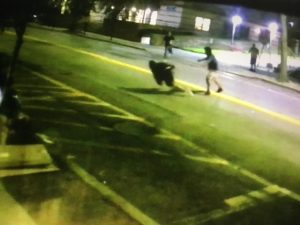
These ideas included the city police department staffing an additional quality of life officer for weekend nights, the city significantly increasing fines related to non-compliance with quality of life regulations, and requiring earlier closing hours to a broad category of businesses, not just restaurants.
They also discussed requesting the SLA require earlier closing hours as a condition of issuance of new liquor licenses.
Council members previously proposed making a 2 a.m. closing and 5 a.m. opening time for restaurant businesses.
Asked by Deputy Mayor Patricia Riley if they could still enforce the proposed 2 a.m. closure at some point, Alexander said, “There are avenues, but they require steps and it’s not as clearcut.”
Another returning item from last month’s discussion on limiting restaurant hours was implementing graduated fines for quality of life offenses.
The proposed amendments to the city code would increase the fines for violations of commercial maintenance, implement graduated fines for repeat offenders, and increase even more fines for violations by corporate entities (Chapter 230). Gordon noted the revisions would expand the definition of a corporate entity, to any entity that is not an individual, but is an LLC, partnership, or any incorporated entity.
Other proposed amendments would increase penalties for fire safety and property maintenance violations (Chapter 278), for lack of snow and ice removal (Chapter 474), and for property and building nuisances (Chapter 428), which would increase from $1,000 to $2,500.
Gordon suggested this item could be packaged with the methods of enforcing bars’ and restaurants’ compliance for quality of life laws in the city.
City Attorney suggests amendments regarding permits for large-scale battery systems
Keane & Beane, P.C., the firm representing the City of Peekskill, is suggesting the city implement a six month moratorium on the issuance of permits for large-scale battery energy storage systems (BESS), those with capacity of over 80 kilowatt hours.
City Attorney Eric Gordon noted there have been several fires since May 2023, which has raised public concern about the safety and volatile nature of lithium-ion batteries.
In Gordon’s memo, he noted, “The city plans to study the safety and security of these energy storage systems…, to prevent fires…, and ensure emergency responders have the necessary training and information to prepare and deploy resources in the event of a fire.”
“Further study would take place and proposed legislation, through the form of zoning, would be implemented hopefully at the end of that six month period to better control these facilities and make sure they’re safe,” Gordon said at the meeting. “And if they’re put in an area where there are residences, that they can be controlled and proper fire safety issues be developed.”
According to City Attorney Gordon, systems with a capacity of less than 80 kilowatt hours will not be subject to the moratorium. The fire chief and building inspector are comfortable allowing those units to be installed and maintained in individual residences.
If the council intends to proceed with the moratorium, a resolution scheduling a public hearing will be brought forth at the May 18 Committee of the Whole meeting, according to the city attorney’s memo.
The city attorney, city manager, and comptroller are also in the process of reviewing the city code on “Procurement Policy,” with the attorney preparing a law that would enable the city to award contracts based upon “best value.”
This would enable “ a municipality to rely on factors other than who is the lowest responsible bidder when making a purchase that falls within the competitive bidding monetary thresholds.”




